
Women played an important role in the Greek pantheon in ancient Greece, and many of the Greek gods had a female counterpart who possessed different but equal powers. Here are 11 Greek goddesses who still influence our culture today.
1. Athena
Known as the patron goddess of Athens, Athena was born fully grown from the head of her father, Zeus. The ancient Greeks often depicted her with a shield and spear, symbolizing her role in battle strategy and protection.
The olive tree was a sacred symbol of this Greek goddess, representing peace, wisdom and prosperity.
2. Aphrodite

The epitome of beauty and desire, the Greek goddess Aphrodite captivated the hearts of gods and mortals alike. As the goddess of love and fertility, her influence extended to matters of passion and romance in ancient Greece.
Legend has it that Aphrodite emerged from the sea foam, embodying the raw energy of the ocean’s waves. Through her love affair with Ares, the god of war, Aphrodite became the mother of Eros, the god of love.
3. Artemis
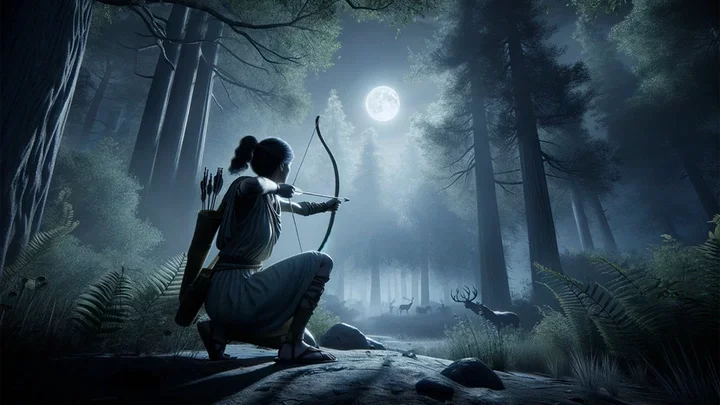
The twin sister of Apollo, Artemis was the Greek goddess of the hunt, wilderness and childbirth. The ancient Greeks usually depicted her with a hunting dog and bow. In art, as in her myths, this Greek goddess roamed the forests with her nymph companions, fiercely protecting wildlife and young maidens.
4. Demeter
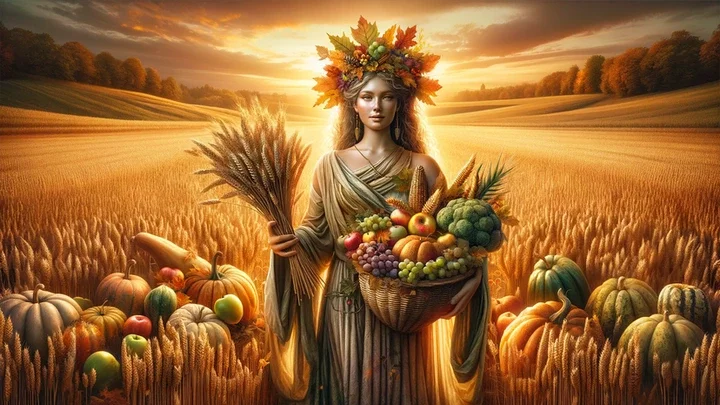
Revered as the Greek goddess of agriculture and fertility, Demeter was responsible for the bountiful harvests that sustained ancient Greek society. Her grief over the abduction of her daughter Persephone by Hades led to the creation of winter, a narrative that symbolized the cycle of life, death and rebirth.
5. Gaia
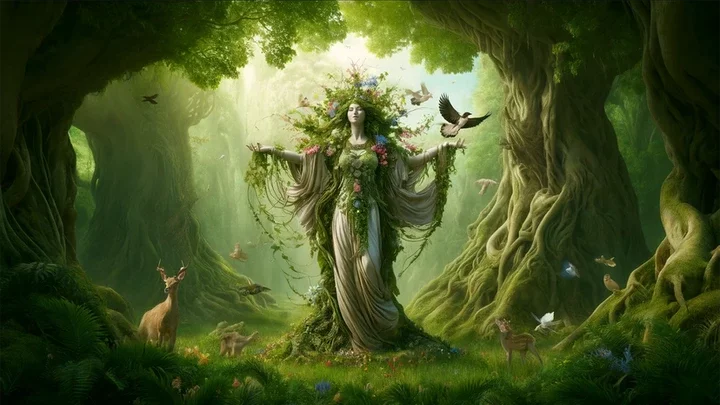
Sometimes seen as the Greek goddess of the earth, Gaia was revered as the mother of all living beings. According to Hesiod, she birthed the titans who preceded Zeus and the other gods of Olympus.
Gaia served as the ancient Greek people’s version of Mother Earth and represented the interconnectedness of life.
6. Hecate
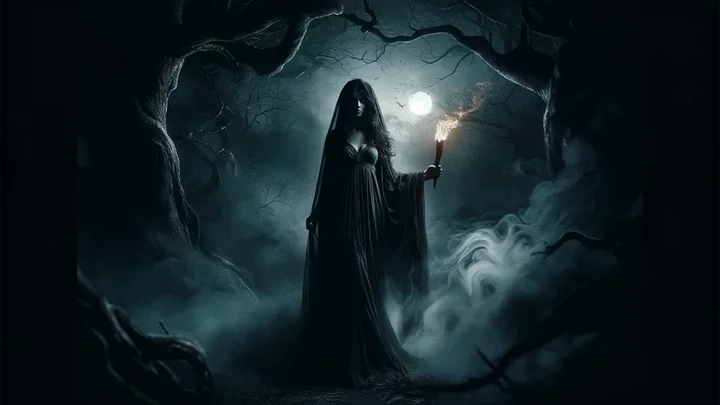
The goddess of magic and witchcraft, Hecate was a mysterious figure with the ability to see into the depths of the underworld. People who sought guidance in matters of the occult worshipped this Greek goddess and believed her to roam the earth accompanied by eerie hounds.
7. Hera
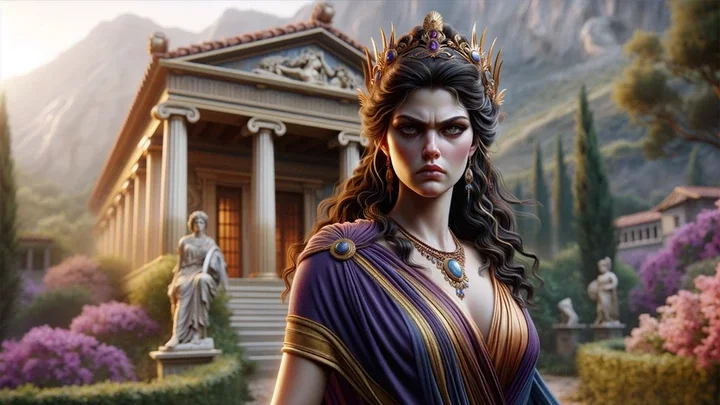
As the wife of Zeus and being his female counterpart, Hera was the queen of the gods. Despite the fact that she presided over marriage, women and family, the ancient Greeks often portrayed Hera as a formidable figure, fiercely protecting her domain and punishing those who defied her.
This Greek goddess was responsible for imposing 12 labors upon the legendary Greek hero Heracles, also known as Hercules in Roman mythology.
8. Hestia
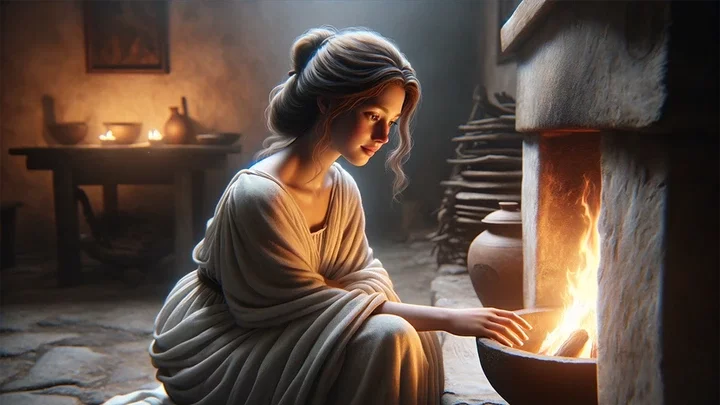
The Greek goddess of the hearth and home, gentle Hestia epitomized the warmth and comfort of domestic life.
Despite being a minor goddess, she held an important place in every ancient Greek household, where people kept a sacred flame burning to honor her, symbolizing good health and prosperity.
9. Nike
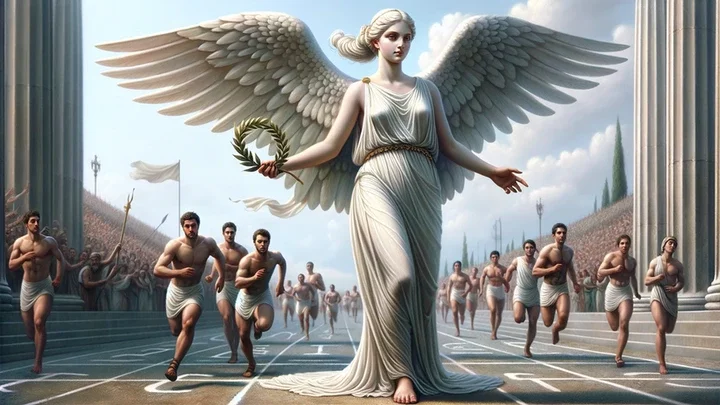
As the Greek goddess of victory, Nike was responsible for granting triumph to warriors and athletes. In images she often had wings and held a laurel wreath. Even today, as a symbol of victory, she appears on countless monuments and temples dedicated to her glory or to people’s endurance.
10. Persephone

The daughter of Demeter and queen of the underworld, the Greek goddess Persephone symbolized the changing seasons and the cycle of life and death. Her abduction by Hades was responsible for creating winter each year, while her eventual return to the earth marked the transition from winter to spring.

Leave a Reply